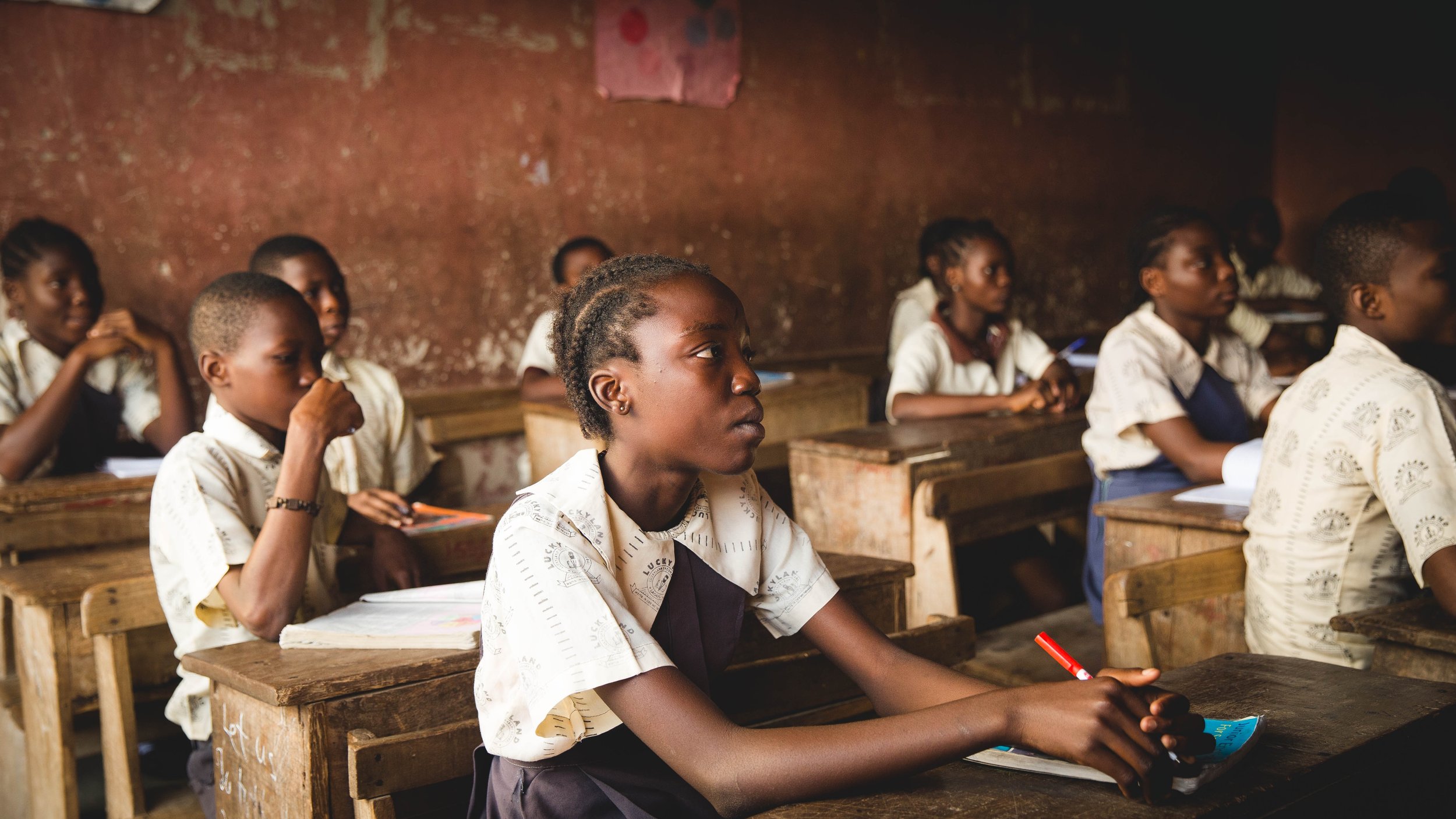
“Education is the most powerful weapon which you can use to change the world.”
–Nelson Mandela
Our Vision
A high-quality education that ensures all young people reach their potential, realize their aspirations, and become a positive force for social and economic change in the world.
Clients
Themes
-

Secondary Education
Secondary education will be the platform to work for most youth in low and middle-income countries, particularly Africa. Yet too few young people access and complete quality, relevant secondary education, with profound implications for productive employment, inequities, and broader social and economic development. Public finances are insufficient to meet demand, and high repetition and dropout rates contribute to inefficiencies. Changes in the world of work are placing new skill demands on secondary school graduates. Greater investment in secondary education is needed, alongside lower cost models of delivery, catch up programs for those that have missed out, and alignment of curricula to life and workforce needs, including digital skills.
-

Skills for Work
The Fourth Industrial Revolution is rapidly changing skill demands and the organization of work. Digital literacy, socio-emotional skills, and science, technology, and mathematics are in increasing demand. Global challenges like climate change and conflict require new skill sets, like critical thinking and collaborative problem solving. Yet education systems are slow to adapt to these changes. Changes to curriculum and pedagogy are needed to better align education and training with labour force demands. More flexible models and approaches are needed to train young people that have missed out on education and to meet youth ‘where they are’. Young people need work readiness skills and opportunities for work experience as part of their educational experience.
-

Inclusion
Understanding who is furthest behind in education, and the barriers and challenges keeping them there, are critical to advancing inclusive education. Young people are marginalized due to poverty, geographic location, gender, disabilities, ethnicity, and more, and often experience multiple and intersecting barriers. Barriers include costs, opportunity costs of schooling, social and cultural norms, violence, and missed opportunities for foundational learning. Further, inclusion in education has often meant supporting youth to adapt to mainstream systems rather than supporting education systems to value and adapt to the diversity of learners. Greater support is needed in financing inclusive education at individual and system levels, training educators, collecting disaggregated data on progress in access, retention and learning outcomes, and building parent and community support.
-

Teaching & Learning
Teachers are the front-line workers of the education system. Without quality teachers, there can be no quality education. A virtuous cycle of teacher development is needed, that includes high quality pre- and in-service teacher training, promotion of the best teachers into roles as instructional leaders, supportive school leaders, and alignment of incentives and motivation. This will lead to improved quality of learning and increased efficiencies, which will in turn elevate the status of teachers and attract high quality candidates to the profession. In this digital and information age, teachers must continue to adapt to become facilitators of knowledge, integrate technology into their pedagogical practice, and strengthen those capacities that technology cannot displace.
Services
-

Analysis
-

Strategy Development
-

Planning & Implementation
-

Program Design & Development
-

Monitoring
-

Documentation & Learning
Contact us.
kkerr@inspireeducation.ca
(647) 202-3768
591 Merton Street
Toronto, ON, Canada
M4S 1B4



